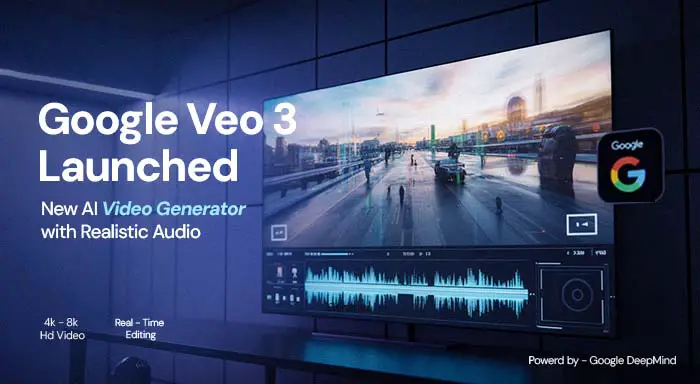
Google has rapidly expanded access to its latest AI video generation model, Veo 3. Google is making it available in 71 additional countries beyond its initial U.S. launch. This expansion was announced by Josh Woodward, Vice President of Gemini at Google, via a post on X (formerly Twitter). However, notable regions such as the European Union, the UK and India are not included in this first wave of rollout. With Google working to enable access in India as soon as possible.
Veo 3, launched at Google I/O 2025, represents a big upgrade over its predecessor by integrating native audio generation alongside video creation. This means it can produce videos with synchronized dialogue and music directly from text prompts, enhancing the realism and creative possibilities for users. The model can interpret detailed instructions, including moods, tones, and cultural settings, delivering cinematic-quality outputs that have already gone viral on social media.
Currently, Veo 3 is accessible exclusively to paid subscribers of Google Gemini platform under two tiers: Pro and Ultra. Pro subscribers receive a one-time trial pack of 10 video generations via the web version, with mobile app access coming soon. Ultra subscribers, paying $249.99 per month, enjoy full access on both the Gemini mobile app and web, including daily refreshes and higher generation limits. Additionally, Ultra users benefit from the Flow app, a new AI filmmaking tool launched alongside Veo 3, which offers 125 video generations monthly, compared to 10 for Pro users.
The rollout covers a diverse range of countries including Argentina, Australia, Brazil, Canada, Japan, Kenya, Malaysia, Nepal, New Zealand, Pakistan, Singapore, South Africa, South Korea, Sri Lanka, the United States, and Zimbabwe, among others. Despite its impressive capabilities, Veo 3 currently supports English audio output only, with other languages expected to be incorporated over time.
Beyond its creative potential, Veo 3 also raises concerns about the ease of generating highly realistic deepfake videos, which could be misused for disinformation. Google has implemented watermarking and metadata tagging to help identify AI-generated content and mitigate misuse, but ethical discussions and regulatory considerations are ongoing as the technology becomes more widespread.
This expansion of Veo 3 signals a transformative moment in video production, democratizing access to professional-grade video creation tools. It holds promise for educators, content creators, filmmakers, and businesses worldwide by drastically lowering the barriers to producing high-quality video content. As Google continues to refine and broaden Veo 3’s availability, including plans for India and other markets, the AI video generation landscape is poised for rapid growth and innovation.
Other articles you may find interesting





